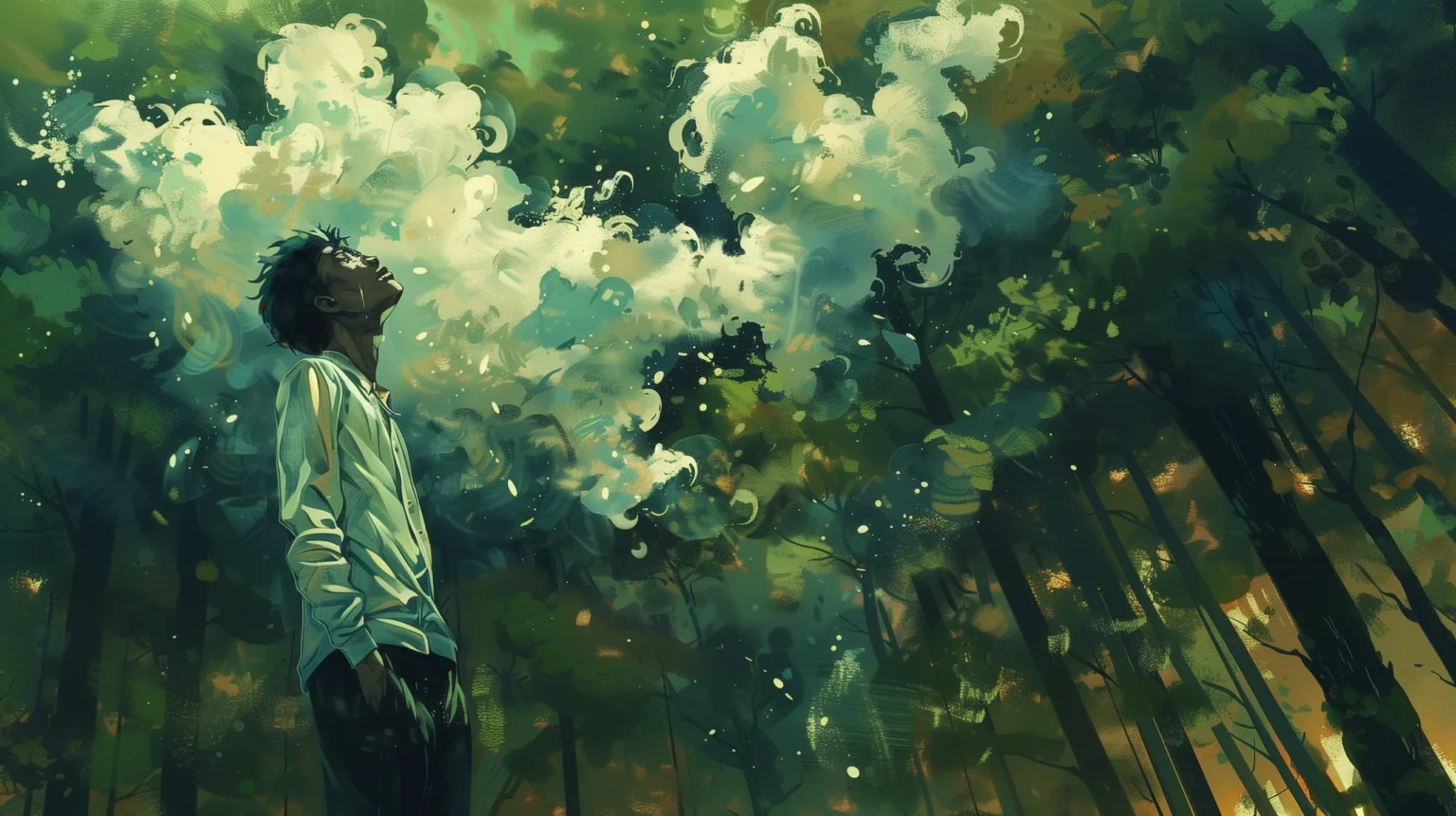Poetics starts with training one’s ear on one’s inner voice
and then summoning the courage to give it outward expression.
It begins the process of valuing one’s perspective. By weaving one’s views with something in the world that draws one’s attention, it gives one an opportunity to consider one’s angle on the matter.
Say, for example, that a student is drawn to the sunrise (a rather universal symbol). It may start with an appreciation for the beauty or mystery of the sun rising, perhaps even as an escape from the more boring happenings of daily life, but as long as poetics remain active in the observation process, it will lead to a consideration of how one relates to the sunrise (what it is that attracts us and what it is that it summons forth from within us). The student may reflect on their personal yearning for hope, new beginnings, and how dawn symbolizes that. That in itself transforms what could be a passing attraction to some natural phenomena to an exploration of the self which affirms a sense of worth and awareness; a sense that one is in fact a co-creator of meaning, co-discoverer of truth, along with the cosmos. This places one squarely on the path to respecting the dignity of life, but poetics can take it even further.
It may be the very next day, or perhaps months later, when the student finds themselves again grappling with the beauty of a sunrise, but the inquiry now broadens. At this point, there has already been an internalization of meaning, an established bridge between natural phenomena and one’s personal narrative, anchored and strengthened by rhymes and metaphors, and this sets the foundation to build more in communication. With this, the student can unearth a boundless storehouse of learning. They may wonder: I think the sunrise can represent hope, but does the sun actually reflect my feeling? Where is the sun before it dawns? Does it stop shining? Is it a matter of perspective, and the rotation of the Earth? And then in turn they may reflect back on themselves: Is it the same with me? Is hope a matter of perspective, a matter of allowing for the self to revolve and rotate with time? Is there something in me that is like the sun, shining somewhere indomitable, even when it appears that it is dark?
This kind of inquiry opens the way to an unending search for meaning and learning. As truth resonates with the reflections of the self, this sense of connection and completeness gives way to joy and appreciation. The student goes from simply grappling with art and the self to a study of science and philosophy. Because it carries the exploration for the phenomena while it is interwoven with the narrative of the self, it creates a joy that emerges when the student is personally invested, seeing a practical value for the search.
Thus, the first benefit of poetics, that of awakening to one’s unique narrative, and one’s role in authoring that story, gives way to the second benefit: that of realizing every other person is also the author of their narrative. This enables one to start paying attention to those elements in another person, to ask the questions that help reveal them, to appreciate them, and to seek to draw them out.

Having experienced the flowering of poetry in its different seasons, we offer these records of a life dedicated to restoring connections through poetics.
Enjoy books about philosophy, peacebuilding in the city, immersion in nature, and children’s stories.

The process of bringing an idea to reality takes time, effort, skills, and knowledge. To facilitate the journey from first draft to publication, we offer 1-1 consultations.
We are prepared to help with editing, formatting, marketing, and publishing services for independent authors.

